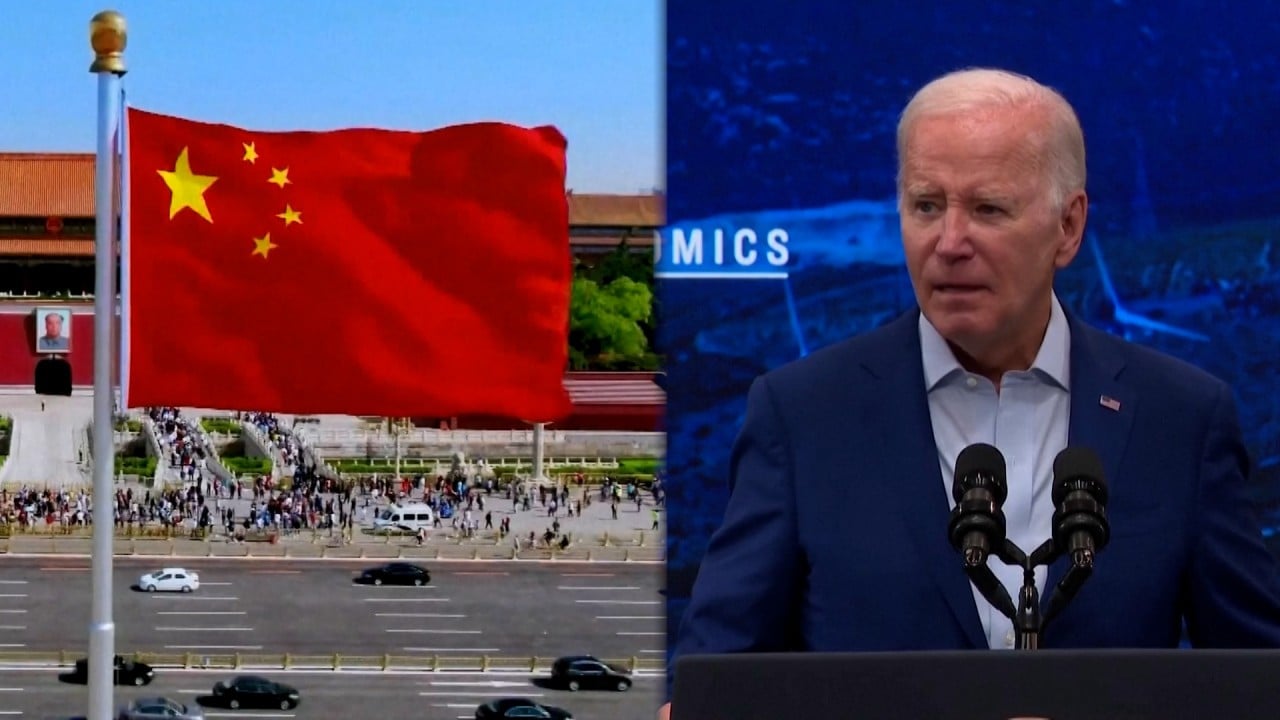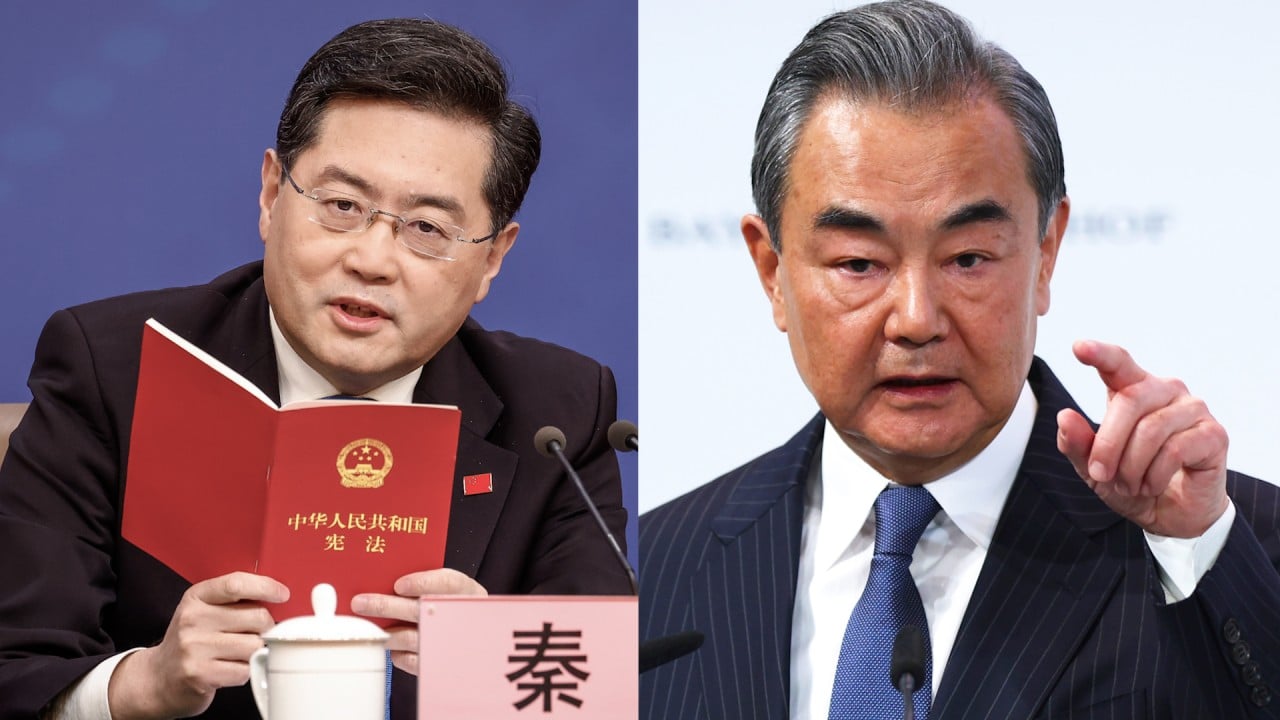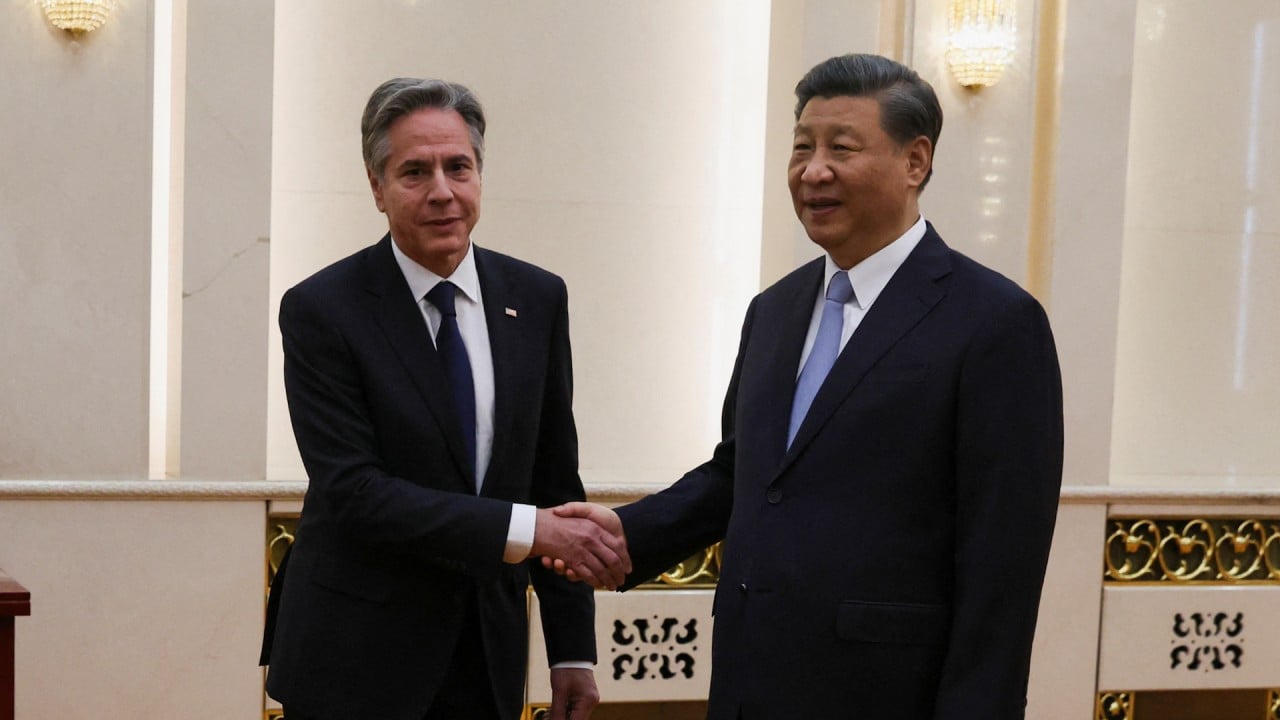They say both sides have taken steps in recent weeks to limit fallout from an order that US officials say has been in the works for at least a year.
Advertisement
“The severity and scope of the executive order has certainly decreased from what we have thought in the beginning,” Da said.
But Da said Raimondo would have to take some time to settle the issue during her trip.
Beijing might still also have a tit-for-tat response to the order, he said.
On the day of the announcement, the Chinese foreign ministry was quick to protest over the restrictions, labelling them “outright economic coercion and tech bullying” designed to “deprive China’s development rights” in the name of national security.
Advertisement
China’s Ministry of Commerce also pledged to “preserve its own interest resolutely”, reserving its “rights to take actions”.
US chip industry urges clear access to China market after Biden’s tech order
US chip industry urges clear access to China market after Biden’s tech order
The areas covered by the order have been at the centre of tech rivalry between the two countries, with the US rolling out restrictions on the sale of advanced chips to China in October.
Advertisement
Lu Xiaomeng, geo-technology director of Eurasia Group, said she expected China to respond to Wednesday’s executive order with “some high-profile moves”.
“Retaliation may take the form of unfavourable antitrust decisions on merger and acquisition deals involving US companies, or expansion of export control restrictions, among others,” Lu said.
Advertisement
But the Chinese reaction was unlikely to be great enough to stop Raimondo’s visit, she said.
Yang Dali, a political economy professor at the University of Chicago, also expected trade talks to continue as China has shown a willingness to engage with the world economically again.
Advertisement
“That is an indication clearly China feels like it needs to reach out, [and] it needs to have the open door again,” Yang said.
He agreed that – from China’s perspective – the tech investment bans were a setback to their normalisation of ties but the outcome to be mediated.
“[I think] part of the effort for the leadership in Beijing to receive American officials from the secretary [of state] and then to others, is part of an effort to try to narrow down or defuse this particular order in a way,” Yang said, adding the meetings “did help” to delimit the final restrictions.
But there are other uncertainties.
When US Secretary of State Antony Blinken and Treasury Secretary Janet Yellen visited China, they were received by then-foreign minister Qin Gang, who was suddenly removed in July without official explanation.
Yang said the sudden replacement of the foreign minister was “disruptive” to the US-China communication and it was unclear how long Wang Yi, who replaced Qin, would be in office.
“The biggest thing is really whether President Xi Jinping would be at the Apec meeting in the US [in November] and whether there would be a meeting between him and President Biden,” Yang said.
“If that happens, clearly, all the setbacks over the last few months would have more or less been decided [by both sides] to put them aside a little bit … but I’m pretty sure some of the terms or phrases by President Biden also do get to China as well.”
Biden referred to Xi as a “dictator” in June and this week called China a “ticking time bomb” because of its economic challenges.
There are also tensions over Taiwan.
Shi Yinhong, an international relations professor at Renmin University in Beijing, said major changes through high-level dialogue were unlikely.
The coexistence of competition and confrontation – a traditional portrayal of US-China relations – “has become a very untimely and inappropriate proposition because the former part of that description has overwhelmingly exceeded the latter part in recent years”, he said.
Shen Dingli, a Shanghai-based international relations researcher, said there could be a silver lining to the order in the long run.
“If China does not owe the US [in terms of technological advancement] … the two countries could walk their own path and avoid entangling interests,” he said.
Additional reporting by Xinlu Liang
Advertisement
Are US tech curbs the end of the road for better relations with China? - South China Morning Post
Read More
Bagikan Berita Ini




















0 Response to "Are US tech curbs the end of the road for better relations with China? - South China Morning Post"
Post a Comment